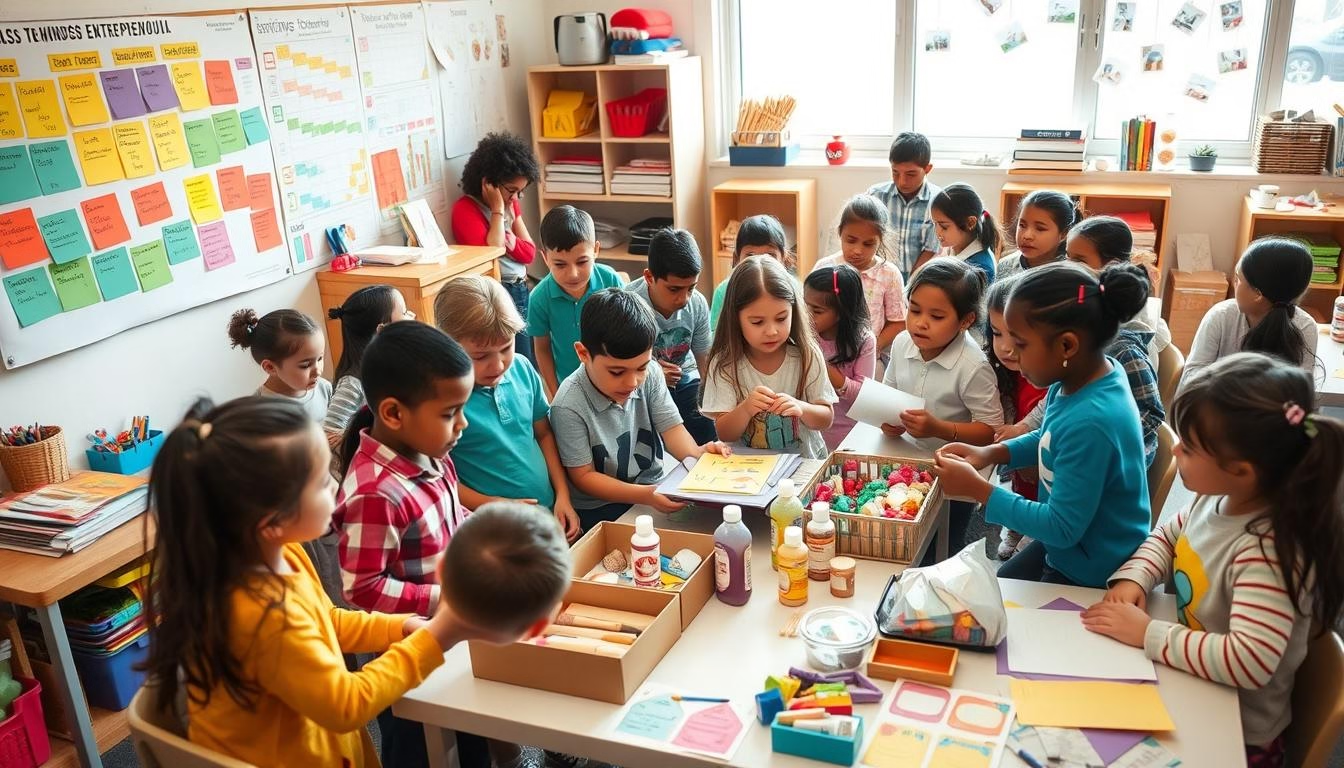Parenting has changed a lot since our grandparents’ time. Now, we face new challenges in the digital world. Being a good parent today means finding a balance between old values and new ways of raising kids.
Being a good parent today is more than just taking care of basic needs. It’s about dealing with digital changes, societal pressures, and finding a balance between old and new parenting methods. It’s about creating a space where kids can grow emotionally, communicate well, and learn from positive discipline.
Key Takeaways
- Parenting today requires adapting to new challenges and complexities in the digital age.
- Being a good parent means creating a nurturing environment that supports emotional intelligence and positive discipline.
- Effective communication and balancing traditional and contemporary values are crucial for modern parenting.
- Parents must prioritize work-life balance and serve as positive role models for their children.
- Developing emotional intelligence and establishing healthy routines are foundational for raising well-rounded children.
Understanding Modern Parenting Challenges
In today’s fast-changing world, parents face new challenges. They must deal with digital issues and balance old values with new ones. Modern parenting is all about finding a balance.
Digital Age Dilemmas
The digital world has changed how kids grow up. Parents must handle screen time, social media, and online safety. They aim to help their children grow in a healthy way.
Societal Pressure and Expectations
Parents today face high expectations from society. They’re expected to be perfect and balance work and family life. It’s tough to meet these demands while taking care of themselves and their kids.
Balancing Traditional and Contemporary Values
Parents must blend old traditions with new ways of raising kids. It’s a tricky task. They want to teach important values while meeting today’s needs.
“The challenges of modern parenting are vast, but with empathy, adaptability, and a commitment to nurturing our children, we can navigate this ever-changing landscape and create a brighter future for the next generation.”
The Foundation of Being a Good Parent
Positive parenting is more than just discipline or taking care of a child’s physical needs. It’s a complete approach to raising kids who are emotionally smart and well-adjusted. Good parenting starts with understanding a child’s needs, creating a caring environment, and showing them how to behave well.
At the core of positive parenting is unconditional love and acceptance. Kids do best when they feel safe, loved, and supported, no matter what. A warm, empathetic home helps kids feel good about themselves and builds their confidence.
Consistency is key in parenting. Kids need a stable and predictable world to feel secure and learn. Setting clear rules, routines, and expectations helps kids grow up to be emotionally smart and responsible.
It’s also important to know and meet each child’s unique needs and stages of development. Tailoring parenting to each child strengthens their bond and supports their growth.
Being a good parent isn’t about being perfect. It’s about truly caring for your child’s emotional, social, and mental growth. By following these basic principles, parents can help raise kids who are strong, empathetic, and responsible.
“The most important thing that parents can teach their children is how to get along without them.”
– Frank A. Clark
Creating a Nurturing Environment at Home
Creating a nurturing home is key for a child’s growth. It involves making sure they are physically and emotionally safe. It also means setting up healthy routines and family traditions. This way, children can grow and thrive in a loving space.
Physical and Emotional Safety
Keeping children safe is the first step in creating a nurturing home. This means having a secure place to live and making sure the home is safe for kids. It’s also about creating a loving atmosphere where kids feel heard and understood.
Establishing Healthy Routines
Healthy routines give children a sense of security and well-being. This includes regular times for meals, sleep, and activities. These routines help kids develop good habits and strengthen family bonds.
Building Family Traditions
Family traditions are a great way to bond and make memories. They can be annual celebrations, shared hobbies, or regular outings. These traditions help create a nurturing environment that celebrates the family’s unique history and identity.
| Element of a Nurturing Environment | Benefits |
|---|---|
| Physical and Emotional Safety | Provides a secure foundation for children to thrive, and helps them feel valued and supported. |
| Healthy Routines | Promotes stability, healthy habits, and strengthens family bonds. |
| Family Traditions | Creates lasting memories, celebrates the family’s unique identity, and fosters a sense of belonging. |
“The most important thing that parents can do is to create a nurturing environment where children feel safe, loved, and supported to explore and grow.”
Developing Emotional Intelligence in Children
Emotional intelligence is key for a child’s growth, often overlooked for school grades. Yet, it deeply affects a child’s happiness, friendships, and success later on.
Teaching kids to know, understand, and control their feelings is vital. This builds self-awareness, empathy, and social skills. These are crucial for dealing with today’s world.
Fostering Emotional Awareness
First, help your child know their feelings. Talk about their emotions like happiness, sadness, or anger. Use conversations, role-playing, or emotional games to help.
Teaching Emotion Regulation
Parents can also teach kids to handle their feelings. Show them deep breathing, physical activities, or creative ways to express emotions. This helps them deal with tough times.
Cultivating Empathy
Understanding others’ feelings is also part of emotional intelligence. Talk about how actions affect others. Show empathy and encourage seeing things from different views.
By focusing on emotional intelligence, you support your child’s well-being and future success. It’s about preparing them for life’s challenges.
| Skill | Description | Benefits |
|---|---|---|
| Self-awareness | The ability to identify and understand one’s own emotions | Improved decision-making, better emotional regulation, and enhanced self-confidence |
| Empathy | The capacity to understand and relate to the emotions of others | Stronger interpersonal relationships, improved communication, and increased social skills |
| Emotion Regulation | The skill to manage and express emotions in a healthy and constructive manner | Reduced stress, improved conflict resolution, and better problem-solving abilities |

“Emotional intelligence is the ability to recognize, understand, manage, and reason with emotions.”
Effective Communication Strategies for Parents
Good communication is key to a strong bond between parents and kids. In today’s world, learning how to talk well with your children can change your family for the better. It helps build stronger relationships.
Active Listening Techniques
Listening well is more than just hearing what your child says. It means being fully there, looking into their eyes, and responding thoughtfully. This shows your child you really care and makes them feel understood.
Age-Appropriate Conversations
It’s important to talk to your child in a way they can understand. Use words and topics that fit their age. This way, you can have real and helpful talks.
Non-Verbal Communication Importance
What you don’t say can say a lot too. Paying attention to body language and tone helps you get what your child is feeling. It makes you more in tune with their needs.
| Communication Technique | Benefits for Family Bonding |
|---|---|
| Active Listening | Fosters feelings of being heard and understood, strengthening emotional connections. |
| Age-Appropriate Conversations | Facilitates meaningful dialogues that resonate with a child’s developmental stage, supporting learning and growth. |
| Recognizing Non-Verbal Cues | Enhances empathy and responsiveness, leading to more nuanced and effective communication. |
Using these effective communication strategies helps create a caring space. It boosts family bonding and helps build better parent-child relationships.
“The most important thing in communication is to hear what isn’t being said.” – Peter Drucker
Positive Discipline Approaches That Work
In today’s world, old ways of discipline don’t cut it. It’s time to move away from harsh punishments and focus on positive reinforcement. This shift helps parents support their kids’ growth and strengthens family ties.
Using natural consequences is a smart discipline strategy. It lets kids learn from the results of their actions. For example, if they forget to put away toys, they might not play with them the next day. This teaches them responsibility without yelling or timeouts.
- Encourage good behavior by recognizing and praising your child’s achievements, no matter how small.
- Establish clear rules and routines, and consistently enforce them with empathy and understanding.
- Involve your child in the decision-making process, allowing them to have a voice in developing family guidelines.
By adopting positive parenting methods, parents can help their kids develop strong discipline strategies and child development. This approach not only improves behavior but also deepens the parent-child bond. It sets the stage for a lifetime of respect and understanding.
“Discipline is not something you do to children, but something you develop within them.” – Dr. Jane Nelsen, author of Positive Discipline.

Effective discipline strategies are about guiding and nurturing, not punishing. By embracing positive parenting, families can build a harmonious home. This environment supports child development and empowers kids to make smart choices.
Balancing Work and Family Life
In today’s fast world, finding a good work-life balance is tough for many parents. We want to be good providers and caring parents. It’s key to manage our work and family life well. By using smart strategies, we can make a place where work and family both thrive.
Time Management Tips
Managing time well is crucial for balancing work and family. First, sort out your tasks and set achievable goals. Learn to share tasks with others. Use tools and methods to work more efficiently, so you have more time for your kids.
Quality vs. Quantity Time
It’s not just about how much time we spend with our families. What matters most is the quality of that time. Be fully there with your kids, enjoy the moment, and make memories. These moments help build strong family bonds and help your kids grow.
Setting Boundaries
It’s important to keep work and home life separate. Talk to your boss about your priorities and set limits on work outside of work hours. Choose specific times for family activities. Make sure to be fully present and engaged during these times.
| Work-Life Balance Strategies | Benefits |
|---|---|
| Prioritize tasks and delegate responsibilities | Increased productivity and more time for family |
| Focus on quality time with children | Stronger family bonds and meaningful connections |
| Set clear boundaries between work and home | Reduced stress and a greater sense of work-life balance |
By using these strategies, parents can achieve a better balance between work and family. This balance is good for everyone. It helps create a supportive environment where children can grow and develop well.
Role Modeling and Leading by Example
As parents, our actions greatly influence our children’s growth. It’s key to show the values and positive parenting we want to teach them. By being role models, we inspire our kids to follow our example of empathy and integrity.
Children watch us closely and often copy what we do. Showing kindness and integrity helps shape their character. This prepares them for life’s challenges and helps them become well-rounded adults.
Leading by example creates a safe and supportive environment for our kids. It helps them develop emotional intelligence and make good choices. Our example sets the stage for a family that values respect, open communication, and growth.





